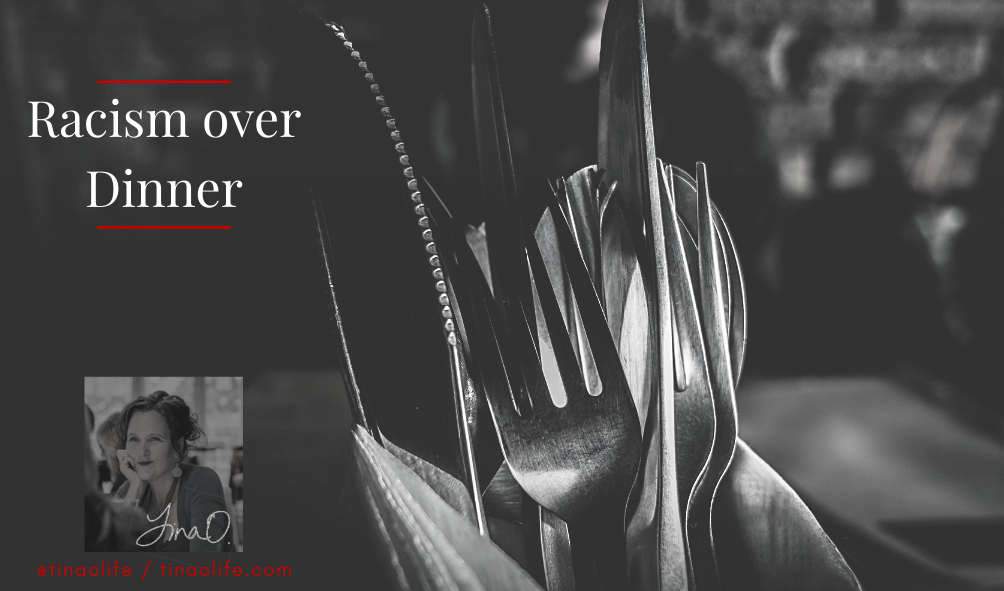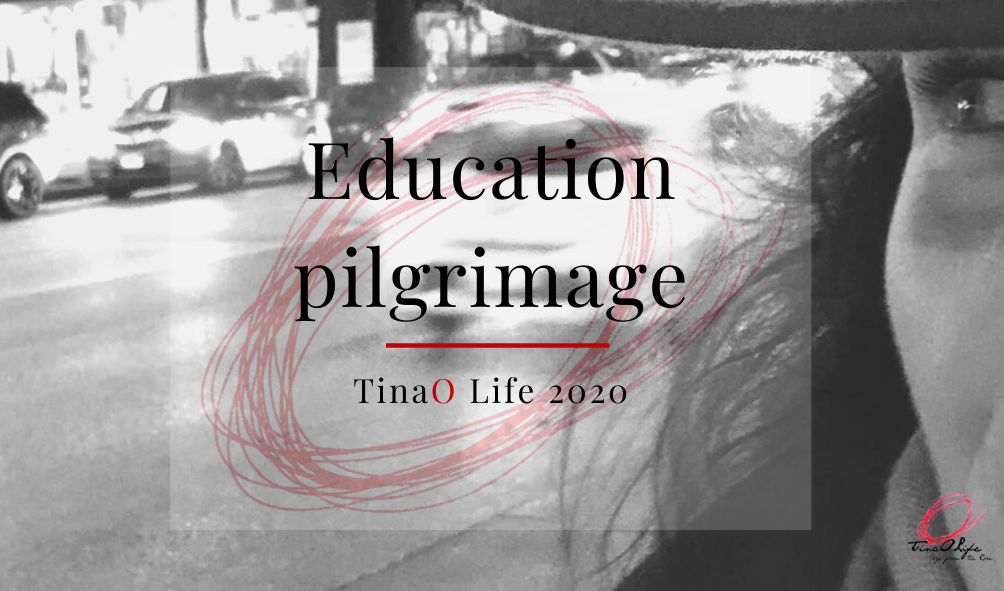

Racism over dinner #1
George Floyd, 46, died on May 25 in Minneapolis while being arrested. He was held down by a police officer’s knee and died while pleading in pain that he ‘can’t breathe’. Eight minutes and 46 seconds later, he shut his eyes and stopped breathing and talking. He was pronounced dead shortly after.
The Black Lives Matter movement was sparked by George Floyd’s death and as a mom to three boys to men, I wanted to open up the conversation at the dinner table. Here is a bit of what I learned from my almost 19, 17 and 10 year old sons and an excerpt from the Facebook Post I shared later that night.

How goes your racism and white privilege conversations at the dinner table…?
I’m not making light of this even a little bit. I seriously want to know what is happening in your home…?
I’ll start… I was surprised by how passionate I was, (frankly how threatening I was) around the concept of the boys watching the ‘news media’ as entertainment. I actually made them say out loud my threat…
‘Mom will personally hunt me down if I EVER watch someone else’s pain as an audience member – my entertainment is NEVER at someone else’s expense’.
Wow.
I am quite surprised by my own passion about this.
Thank you to Kyle Hawke for the Guardian article posted, tracking the 400+ years beginning with the first slave sold on American soil. This showed the magnitude of what is happening and I read it to my boys.
I also read an article about FEAR of any kind of ‘establishment’ and what that can do to a society, and what that means. This of course is a super complex conversation, and tricky.
I tried reallllllllly hard not to judge but instead created a table where people weren’t interrupted or talked down to.
I asked more questions and only gave a few answers.
These conversations are important.
- We also talked about apathy – and what it means.
- We talked about white privilege and what it means to us today.
- We talked about divisive thinking.
- We role played the George Floyd incident in all positions.
- We talked about empathy.
- We talked about the difference between blame and responsibility.
It was a big night at the table over burgers, and it’s our privilege to talk about it from the safety of the white bubble we live in.
The boys very clearly, were passionate about how stupid racism is.
How it makes no sense at all.
How the colour of someone’s skin does not determine their value.
That was easy.
Some of the other pieces took more time and more insistence on my part to ‘stay with it’.
Okay… your turn – GO.
What was easy? What was hard for your household?
And whatever you did… it was a start.
However you handled it, you are trying.
Whatever you know or don’t know, you are offering a possibility for change.
You got this…
Keep going.
Please don’t be a bystander.
And you don’t have to be an activist either.
DO talk about it.
Apathy is entitlement.
Apathy is privilege.
Apathy is part of the problem.
What affects you affects me.
Xxt

Here are some of the responses I received:
No dinner conversations needed here. My better half calls me out when I need to reconsider things that come out of my mouth and rightly so. Racism runs deep, deeper than we know, deeper than it’s comfortable to admit. We watched ‘The Hate U Give’ this afternoon. I cried, a lot. I was rattled by it, angered by it and that is good. Now I consider, where to go from here.
‘White Fragility’ will be in my hands for consumption as soon as my better half is done reading it.
We are talking over here too – my proudest moment was when my eldest said to us – “What can we do?”
We started the day with a video of 3 generations of black men at a demonstration. It is raw and difficult. We discussed why they were there and their different perspectives. Claus and I shed tears. We discussed white privilege, white saviorism, internalized and generational racism. We discussed how Canada thinks we aren’t as bad as the US and how Canada is racist. We discussed what it might be like if their dad were black and the boys were half black vs half German and half Jewish and how it is a privilege to hide their hidden minority. How there are people in the world who would hate them for being half Jewish… So heavy. I started a thread to share resources for white folks to start to dig into these subjects.
My partner is in the process of renouncing his U.S. citizenship to become Canadian, and is going through a lot of major life changes at the moment. So in a way, I was reluctant to bring it up, since he is under lots of stress. But I had made the decision to not remain silent anymore, so I said that I had been reading and watching and learning a lot about what’s happening in regards to racism these days. Even though I know that racism is one of the things that angers him, I noticed how I was a bit afraid to continue. After a few moments, he asked me to tell him more. So I did. About the struggles, and the mixed feelings out there, and the uncertainty of what to do, and that I’m not ok with being a silent anti-racist supporter anymore. That I am trying to find ways to be in action. He was receptive and interested. The biggest takeaway was my reluctance to talk about it. Perhaps it’s from having worked in a federal prison for 15 years and seen enough atrocities to last a lifetime. But that’s what privilege is, isn’t it? I get to choose how much atrocity to let in. They don’t. I will not leave them alone in it anymore.
Thanks for asking this, Tina. Here’s how it went in my household (with a seven year-old). Me: So, hey you know I read you that story that really upset you, that showed how black people escaped from slavery? Him: Uh, yeah. Me: Well look at this picture (photo of protests). This sign held by a kid your age says, “How could we come this far, to only come this far.” And then I go on to tell him about Ahmed Aubrey and George Floyd, and how horrible things like this happen every day, done by white people, to black people. And how here in Canada, most often horrible crimes like that happen to First Nations people most often. And then he said, “Can I go play now?”
Mine’s 11, and ASD, so our conversations aren’t quite as nuanced, yet, but we’re talking.



Tina Overbury is a core-communications specialist who works with individuals and organizations who feel called. She is a storyteller, performer, and a professional listener who works with narrative and story structure as a vehicle for human connection. Her work is rooted in Myth, Mysticism, and the practice of personal faith. She brings thirty years of collaborative storytelling in theatre, film, marketing, team based selling, and workshop facilitation. She is the founder of Live Your Best Story, a weekend retreat of deep listening held on Bowen Island, BC, Canada and is the voice and story behind TinaOLife, home to Story Stones, TinaO’s weekly online gathering of listening in to sacred stories. Tina is a proud associate of PowHERhouse media where she listens and supports the ‘stories’ of whole and integrated leaders of tomorrow.
If you would like to know more about Tina’s approach to story, click here.




